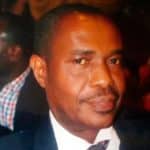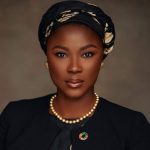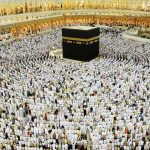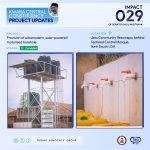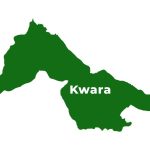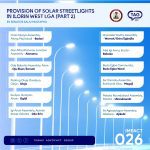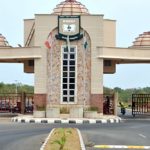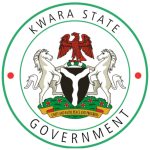Could you give an assessment of President Bola Tinubu’s administration in his first year in office?
I think the ball has started rolling, but the ‘hat trick goals’ are yet to be scored. President Bola Tinubu has demonstrated a keen understanding of Nigeria’s complexities, and his policies and actions reflect this. He has shown a willingness to listen, learn, and adapt, which is essential for effective leadership. While the Renewed Hope Agenda has yet to fully manifest, I am confident that we are on the right path. With time, patience, and dedication, I believe we will achieve the desired results. The recently launched infrastructure development projects aimed at enhancing transportation, energy, and digital connectivity, are a step in the right direction. Furthermore, the emphasis on youth empowerment, education, and healthcare reform is crucial for Nigeria’s long-term progress. However, I acknowledge that more needs to be done to address the country’s pressing issues, such as poverty, inequality, and insecurity. The government must continue to engage with stakeholders, foster inclusive growth, and ensure that the benefits of development reach all Nigerians.
Going by the current state of the nation, would you say that Nigerians still believe in President Bola Tinubu’s Renewed Hope Agenda?
Despite the current state of the nation, I firmly believe that Nigerians still have faith in President Bola Tinubu’s Renewed Hope Agenda. Those of us who understand the intricacies of Nigeria’s challenges recognise the potential of this administration. Hope is a powerful force, and I believe it will quench our deepest thirst for a better Nigeria. Nigerians are resilient and have a strong desire for progress. We have faced numerous challenges in the past, and we have always found ways to overcome them. I believe that President Bola Tinubu’s administration has the potential to tap into this resilience and channel it towards meaningful change. It is essential to acknowledge that change is a gradual process. It requires patience, dedication, and collective effort. We must support the government’s initiatives, hold them accountable, and work together to build a better future for ourselves and generations to come.
What is the current state of things in Kwara State, especially in the areas of infrastructure and poverty alleviation?
Kwara State is moving forward, although not at a light speed pace. The current administration has initiated significant infrastructural developments across the state, including my hometown, Igbonla, in Irepodun Local Government Area. The government’s responsiveness to the needs of its citizens and its poverty alleviation efforts are commendable. The recently completed road projects, healthcare facilities, and educational infrastructure demonstrate the government’s commitment to improving the lives of Kwarans. In addition, the empowerment programmes for youths and women, aimed at enhancing their economic opportunities, are laudable. While there is still much work to be done, I am pleased with the progress so far. I believe that with sustained efforts, Kwara State can become a model for development in Nigeria.
Would you say that the Otoge spirit is still alive and powerful in Kwara as it was in the last two general elections?
The Otoge spirit is still very much alive in Kwara, although it may have relaxed slightly. I think the biggest critics of Otoge are largely those who feel left out or benefited from the previous dispensation. I, however, see the benefit of Otoge in the opportunities given to young and energetic leaders to serve the people. Otoge represents a paradigm shift in Kwara’s political landscape, where young people and women are taking charge and making a difference. It symbolises the power of collective action, grassroots engagement and the determination to create positive change. While there may be some challenges and disagreements along the way, I believe that the Otoge spirit will continue to inspire and motivate Kwarans to work towards a better future.
Don’t you think that power will change hands in Kwara to PDP, Labour Party or any other political party?
While nothing is definitive in politics, I doubt that power will change hands wholly in Kwara to another party soon. For this to happen, Kwara PDP needs to strengthen its internal democracy, build on ideology rather than individuals, and genuinely work for the people’s interests. Only then can they become strong contenders. To contend and to get victory is a matter of strategy, goodwill and God’s grace. Victory belongs only to those granted by God. Kwara PDP must learn from its past mistakes, engage in constructive opposition, and provide alternative solutions to the state’s challenges. They must also reconcile with their own internal divisions and work towards building a united front. Labour Party is almost non-existent in Kwara. Moreover, I believe that the APC in Kwara State has a strong foundation, built on the principles of inclusivity. As long as they remain committed to these values, the APC will continue to enjoy the support of the people.
What is your take on the planned realignment of opposition forces against the All Progressives Congress (APC) for the 2027 elections?
The planned realignment of opposition forces against All Progressives Congress (APC) is still in the pipeline. APC won’t stay idle, and progress is paramount. We must prioritize Nigeria’s development and work together to achieve this goal. Political realignments are a natural part of democracy, and I welcome any effort aimed at strengthening our democratic institutions. However, I believe that such realignments must be based on shared values, principles, and a commitment to the people’s welfare. APC must continue to demonstrate its commitment to progress, listen to the people’s concerns, and adapt to the changing political landscape. By doing so, we will maintain the position as a dominant force.
How do you see the continued domination of Nigerian politics by elders? Do you think there will be a shift come 2027 elections?
The continued domination of Nigerian politics by elders is a reality we must acknowledge. While youth participation is essential, any successful movement must combine the wisdom of elders, the agility and grit of youths, and the compassionate stance of women. This diversity is key to progress. Nigerian politics needs an infusion of fresh ideas, energy, and perspectives. Youths must be given opportunities to lead, and elders must mentor and guide them. We need a balanced approach that leverages the strengths of both generations. The elders have a wealth of experience and knowledge that should not be discarded. However, they must also be willing to listen to and learn from the youths. The youths bring a fresh perspective, energy, and innovative ideas that can complement the wisdom of the elders. Together, we can build a better Nigeria that works for all. We need to create a political environment where everyone has a seat at the table, and everyone’s voice is heard. We need to foster a culture of inclusivity, diversity, and collective leadership. By combining the strengths of both generations, we can achieve great things. We can build a Nigeria that is truly great, where everyone has access to opportunities, and where everyone can thrive.
What is your take on the hike in tariff for electricity and the refusal of the relevant agencies to return to the status quo inspite of several calls to that effect?
The hike in electricity tariff is a burden on Nigerians, especially amidst inflation and reduced purchasing power. I wish the power companies’ productivity would match their billing. We are not asking for too much; we have been through enough challenges. The government and power companies must work together to provide affordable and reliable electricity for Nigerians. They must invest in infrastructure, improve efficiency, and reduce waste. The people’s suffering should be prioritised over profits. We need a Nigeria where electricity is a basic right, not a luxury. We need a Nigeria where businesses can thrive, and people can live comfortably without worrying about power outages. We deserve better, and we must demand for better.



